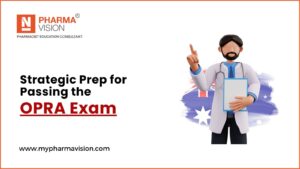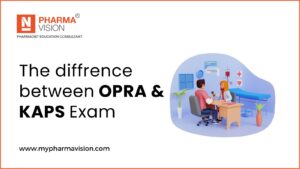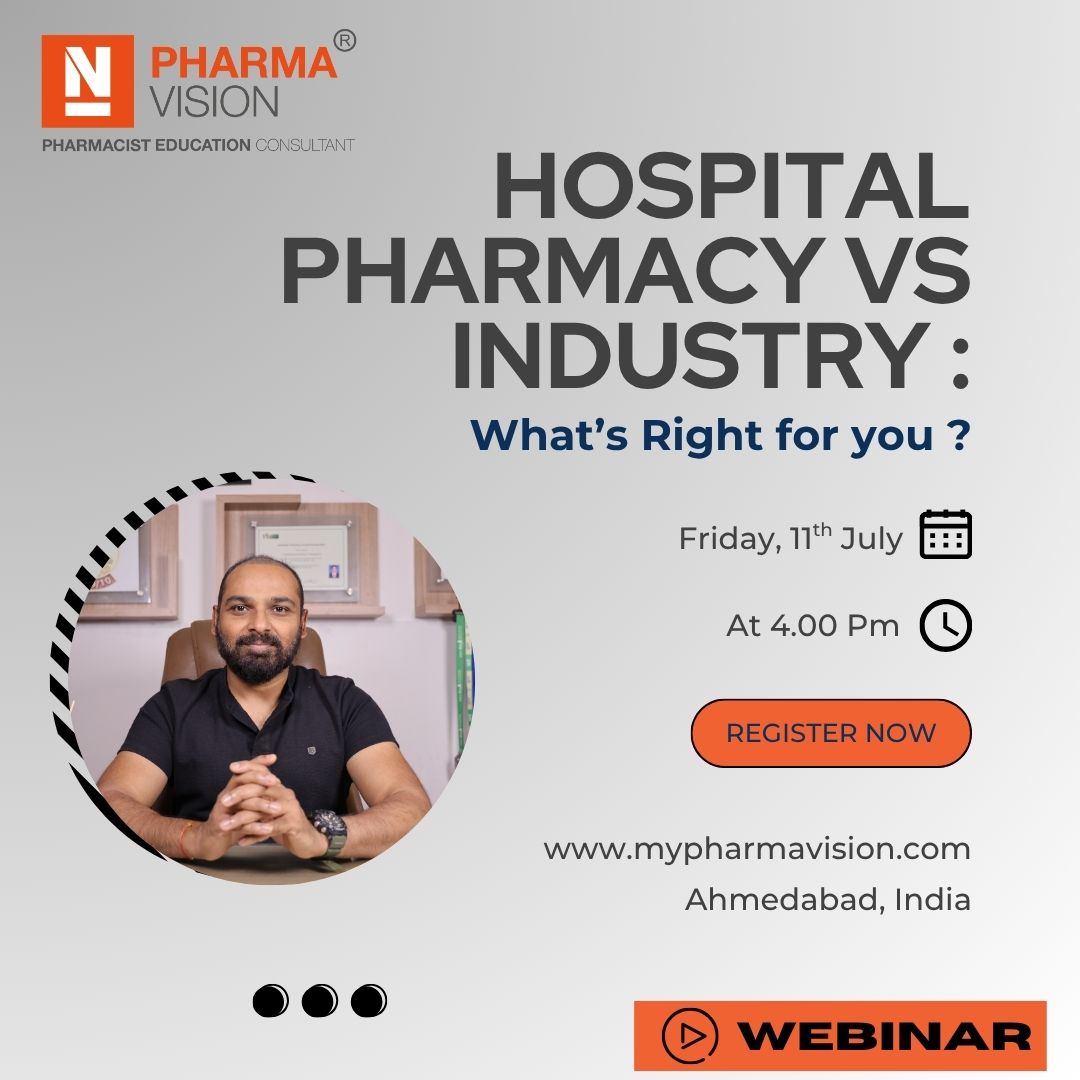Introduction
The United Kingdom offers a vibrant and rewarding environment for registered pharmacists, with diverse opportunities for professional growth and career development. Registered pharmacists in the UK can work in various clinical settings, including hospitals, community pharmacies, and specialized clinics, contributing significantly to patient care and healthcare delivery. The role of pharmacists extends beyond traditional dispensing, including patient counseling, medication management, and active participation in multidisciplinary healthcare teams. With the healthcare sector’s growth and the focus on personalized medicine, UK pharmacists are at the innovation forefront, benefiting from a strong job market and multiple professional development avenues.
Key takeaways
- Diverse Opportunities in the UK as a Pharmacist
- Licensing Process for Overseas Pharmacists
- Role of the GPhC
- Three-Step Registration Process
- UK ENIC for Overseas Pharmacy Qualification Assessment
- Required Documents for Statement of Comparability
- Exam Fee and English Proficiency Requirement
- Application for OSPAP Eligibility
- OSPAP Course and Foundation Training
- GPhC Registration Assessment and Final Registration
Licensing Process Overview
Overseas-trained pharmacists aiming to practice in the UK must undergo the Overseas Pharmacist Assessment Programme (OSPAP), starting with a qualification assessment and meeting English language proficiency standards. Following these initial steps, candidates enroll in an OSPAP program at an accredited UK institution. Completing the OSPAP program leads to a 52-week supervised internship, culminating in an assessment test by the General Pharmaceutical Council (GPhC). Successfully navigating this pathway awards candidates a license to practice as pharmacists in the UK, opening up numerous career opportunities.
Role of the General Pharmaceutical Council (GPhC)
The GPhC is instrumental in regulating pharmacists, pharmacy technicians, and pharmacies in Great Britain. Its mission to protect the public ensures that pharmacy services are safe and effective. The GPhC sets and upholds rigorous standards for pharmacy professionals and premises, conducting inspections and acting to safeguard public health when necessary. Through its regulatory efforts, the GPhC promotes professionalism, continuous improvement, and the assurance of quality and safety in pharmacy services, playing a crucial role in the healthcare landscape.
UK Pharmacist Registration Process
The journey to becoming a registered pharmacist in the UK encompasses a structured three-step process for overseas pharmacists. This pathway ensures that candidates meet the comprehensive standards required for professional practice within the UK healthcare system.
Step 1: Overseas Pharmacists’ Assessment Programme (OSPAP)
The initial step involves successfully completing the Overseas Pharmacists’ Assessment Programme (OSPAP), a prerequisite designed to equip overseas pharmacists with the foundational knowledge and understanding of pharmacy practice in the uk.
Step 2: Foundation Training
The second step requires candidates to undergo 52 weeks of foundation training in England, Scotland, or Wales. This practical training phase must be signed off as satisfactory by the candidate’s supervisor, ensuring the trainee has achieved the necessary competencies to work as a pharmacist in the UK.
Step 3: GPhC Registration Assessment
The final hurdle in the registration process is passing the General Pharmaceutical Council (GPhC) registration assessment. Achieving a pass result in this assessment confirms the candidate’s readiness to practice as a pharmacist in the UK, having demonstrated proficiency in both the knowledge and application of pharmacy.
Overseas Pharmacy Qualification Assessment by UK ENIC
Understanding the equivalence of your international pharmacy qualification with the UK’s Master of Pharmacy (MPharm) is a vital step in pursuing a professional career in the UK. The UK ENIC (Education and Nomenclature Information Centre) plays a crucial role in this process by offering an assessment service that provides the ‘Statement of Comparability’ as a part of your application.
Introduction to UK ENIC
UK ENIC, the UK National Information Centre, specializes in the recognition and evaluation of international qualifications and skills. Following the UK’s departure from the European Union, UK NARIC transitioned to UK ENIC, aligning with the Lisbon Recognition Convention since 1 March 2021. Managed by Ecctis Limited, UK ENIC continues delivering high service standards and support for individuals and organizations seeking qualification comparability.
The Statement of Comparability
Purpose and Application
The Statement of Comparability is a document that aligns overseas qualifications with the UK education system, indicating their UK equivalent level. It’s essential for job applications or further studies in the UK but does not assess grades or specific subject content.
How It Works
The service evaluates qualifications against UK frameworks, considering factors like entry requirements, syllabus, and study duration. Evaluations aim to be completed within 15 working days, though complex cases may take longer.
How to Apply for the Statement of Comparability
Application Process
Applying for the Statement of Comparability is a straightforward online process through the Ecctis website (https://www.ecctis.com/). Applicants can register, create an account, and submit their application along with up to six qualifications for evaluation.
Required Documentation
Applicants need to upload clear photographs of supporting documents, including their high school qualifications if evidence of such is required for their application purposes.
Role of Ecctis
Ecctis provides a range of services beyond the Statement of Comparability, including Visas and Nationality Statements for UK Home Office applications, Industry Skills Statements, and a variety of training and benchmarking services. Their website, https://www.ecctis.com/, is a comprehensive resource for accessing these services.
This guide highlights the importance of the UK ENIC’s role in facilitating the recognition of international pharmacy qualifications in the UK, ensuring that overseas-trained pharmacists have the necessary guidance and documentation to advance their careers within the UK pharmacy sector.
Required Documents for Statement of Comparability Evaluation
To initiate the evaluation for the Statement of Comparability, applicants must provide clear color photographs (JPEG recommended) of specific documents.
Essential Documents
Below are the list of essential documents to apply for Comparability evaluation.
| Document Type | Description |
|---|---|
| Final Certificate | The certificate awarded upon the completion of your qualification. |
| Official Transcript | Details all subjects or modules studied and grades, issued by the awarding institution. Transcripts from affiliated colleges are not accepted. |
| Certified Translations | For documents not in English, certified translations are required unless using our Translation Waiver service. Refer to our FAQ for more details. |
| Evidence of Name Changes | Legal identification (e.g., passport or driving license) showing your current legal name, particularly if it has changed since your studies. |
For quality certified translations, https://www.dialexy.com/en/uknaric-translations is recommended for UK ENIC applications. Ensure photographs show all document corners against a contrasting background for clarity. The Evaluation Team may request additional documents if needed.
Fees and Timeframe
- Service Cost: £49.50 + VAT*, with additional charges based on delivery options.
- Processing Time: Typically, 15 working days from receiving all necessary documents and full payment. This period includes document assessment. Updates will be provided in the User Portal within 15 working days of any additional document submission. Patience is requested for the full 15 working day period for “Order Status” updates in the User Portal.
Fast Track Option
- For expedited processing, a Fast Track service is available. Visit our Fast Track page for detailed information on timeframes and extra fees. Note: The timeframe for completing your order resets upon receipt of any additional documents required during the application process.
Step 2: Pre-registration training placement (52 weeks).
qualification for GPhC Registration
Candidates aiming for registration with the General Pharmaceutical Council (GPhC) must demonstrate their English proficiency through one of the following evidence types:
| Evidence Type | Requirement/Eligibility | Details |
|---|---|---|
| Evidence Type 1a: Standardized English Language Tests | 1) IELTS Academic Version | Requirement: A recent pass with an overall score of at least 7, and no less than 7 in reading, writing, listening, and speaking, in one sitting. |
| 2) OET Pharmacy | Requirement: A recent pass with a score of at least B in each of the four areas (reading, writing, listening, and speaking) in one sitting. | |
| Evidence Type 2: Pharmacy Qualification in English | Taught and Examined in a Mainly English-Speaking Country | Eligibility: A recent pharmacy qualification that was both taught and examined in English, obtained from a country where English is the main language of communication, excluding the UK. |
| Evidence Type 3: Professional Practice in English | Recent Practice as a Pharmacy Professional | Experience Requirement: At least two years of recent practice as a pharmacy professional in a primarily English-speaking country. |
Applying for Eligibility to Complete an OSPAP Course
Initial Verification Process
When seeking to enroll in an OSPAP course, the first step is to have your qualifications and experience verified to determine eligibility. This is done through the “Applying for eligibility to complete an OSPAP” form.
| Component | Requirement/Details |
|---|---|
| Application Form and Fee |
|
| OSPAP Eligibility Result | Upon assessment, if your qualifications and experience align with the OSPAP eligibility criteria, you will be permitted to apply for an OSPAP course. |
| Course Commencement |
|
| Non-Eligibility | If deemed not eligible, pursuing a recognized qualification like an MPharm is necessary for practicing as a pharmacist in Great Britain. |
GPhC-Accredited OSPAP Course Providers
Universities in the UK providing course of OSPAP
- Aston University
- University of Brighton
- University of Hertfordshire
- University of Sunderland
These institutions offer GPhC-accredited OSPAP courses, facilitating the pathway for overseas pharmacists to practice in Great Britain.
Application Process for OSPAP Course at UK Universities
Notification to Universities
Upon meeting the eligibility criteria, they will inform your chosen universities about your eligibility for their OSPAP courses. This notification includes confirmation of your eligibility and may entail sharing further details from your application.
| Category | Detail |
|---|---|
| University Response |
|
| Timing Considerations |
|
Applying early for both the course and training placement is important due to the absence of fixed application deadlines.
Overseas Pharmacists’ Assessment Programme (OSPAP) Course
Course Overview
Completing the OSPAP course, a one-year full-time postgraduate diploma starting during September, is vital for international pharmacists. It equips them with the necessary skills and knowledge to practice within the UK healthcare environment.
University List and Fees
- Universities Offering OSPAP: A comprehensive list is available on website.
- Course Fee: Payable directly to the university.
- Financial Planning: Consider living expenses and the cost of full-time education during your study period.
Journey to UK Pharmacist Registration
Step 1: Pre-Registration application process for Training Placement
Pre-registration training is a crucial 52-week period under the supervision of a tutor at a GPhC-approved site, aimed at meeting specific performance standards.
| Component | Detail |
|---|---|
| Training Structure |
|
| Securing Placements |
|
Step 2: Registration Assessment
The registration assessment evaluates trainees’ ability to apply knowledge and make professional judgments in pharmacy practice.
| Category | Details |
|---|---|
| Frequency | Conducted twice a year, in June and September. |
| Format | Two question papers, both of which must be passed in a single attempt, with up to three attempts allowed. |
| Eligibility | Training Completion: Eligibility depends on the completion of a specific amount of training, detailed in the pre-registration manual. |
Step 3: Registration
Achieving registration as a pharmacist in the UK is the final step, following the successful completion of the OSPAP course, pre-registration training, and the registration assessment.
Registration Process
- Application: Through the myGPhC online system, within four years of starting the OSPAP course.
- Final Milestone: Registration with the GPhC allows for the practice as a pharmacist in the UK, marking the culmination of your training efforts.
Salary structure & Scope of Pharmacist in UK
The scope of Pharmacist career is divided into 2 Parts in the UK.
| Category | Details |
|---|---|
| Intern Pharmacist | Working Days: Mon – Friday Salary: £10-15 / hour Registration: 52 weeks internship for registration as a pharmacist, followed by GPhC Exam |
| Regular Pharmacist | Community Pharmacist: Salary: £25-30 / hour Clinical Pharmacist: Salary: £35-40 / hour Independent Prescriber: GP Practice Optional 1 Year Course Industrial Pharmacist: QA/QC, Production, R&D |
Conclusion
The process for overseas-trained pharmacists to achieve licensure in the United Kingdom is comprehensive, designed to ensure that candidates are well-prepared for the diverse and evolving roles of pharmacists within the UK healthcare system. From the initial steps of verifying qualifications and meeting English proficiency standards to completing the Overseas Pharmacist Assessment Programme (OSPAP), the pathway is structured to integrate international pharmacists seamlessly into the UK’s healthcare landscape.
The General Pharmaceutical Council (GPhC) plays a pivotal role in maintaining high standards of practice, ensuring that all pharmacists, regardless of their training background, are competent and equipped to provide safe and effective care. The structured three-step process, including OSPAP completion, foundation training, and the GPhC registration assessment, underscores the commitment to excellence and patient safety in the UK’s pharmacy profession.
The requirement for a Statement of Comparability from UK ENIC for overseas qualifications assessment further emphasizes the rigorous standards upheld in the UK. This, along with the detailed documentation and fee structure outlined for the entire process, highlights the thorough and transparent approach to pharmacist registration.
In conclusion, achieving licensure as a pharmacist in the UK offers a rewarding career path filled with opportunities for professional growth and development. The structured pathway ensures that pharmacists are ready to meet the challenges of modern healthcare delivery, contributing significantly to patient care and the broader healthcare team. For overseas-trained pharmacists, this journey not only opens doors to practice in a leading healthcare market but also positions them at the forefront of pharmacy innovation and patient care.
FAQS
- Can OSPAP be done online?
No the course cannot be done online.
- Can I do OSPAP without IELTS?
No it is compulsory to give exam of language proficiency to take admission course. You are exempt from the exam if you have studied from the country where there is main language is english or you have done a practice in pharmacy from a primary english speaking country.
- Which university is best for Ospap?
- Aston University
- University of Brighton
- University of Hertfordshire
- University of Sunderland
Above for universities in UK are providing course of OSPAP.
- How long is the Ospap course?
OSPAP is the total 1 year of post graduate diploma course.
- Is completion of an OSPAP Course In the UK enough to work as a registered pharmacist?
No, after completion of course you need to pass the examination and also 52 weeks of foundation training is required.
- How do you qualify for OSPAP?
For qualifying in OSPAP one can must complete the document assessment through UK ENIC which gives them a statement of comparability report which is valid for 2 years and after than you have to take English proficiency exam.
- What is the IELTS score for OSPAP?
One can must achieve overall 7 band and each 7 bands in all the four modules of IELTS.
- For how many times candidate is allowed to give exam of OSPAP?
Candidate is allowed for maximum 3 attempts.
- What is the time period of foundation training to work as a registered pharmacist in the UK?
52 weeks of foundation training is required.
- Is BPharm graduate from India is eligible for the course of OSPAP in UK?
Yes, BPharm graduate is eligible.
- How long does it take to complete OSPAP?
Time limit for completion of initial education and training Students taking an OSPAP followed by pre-registration training and the Registration Assessment [Examination] must complete the three components in four years from the date they commenced an OSPAP. This assumes continuous, full-time study.












